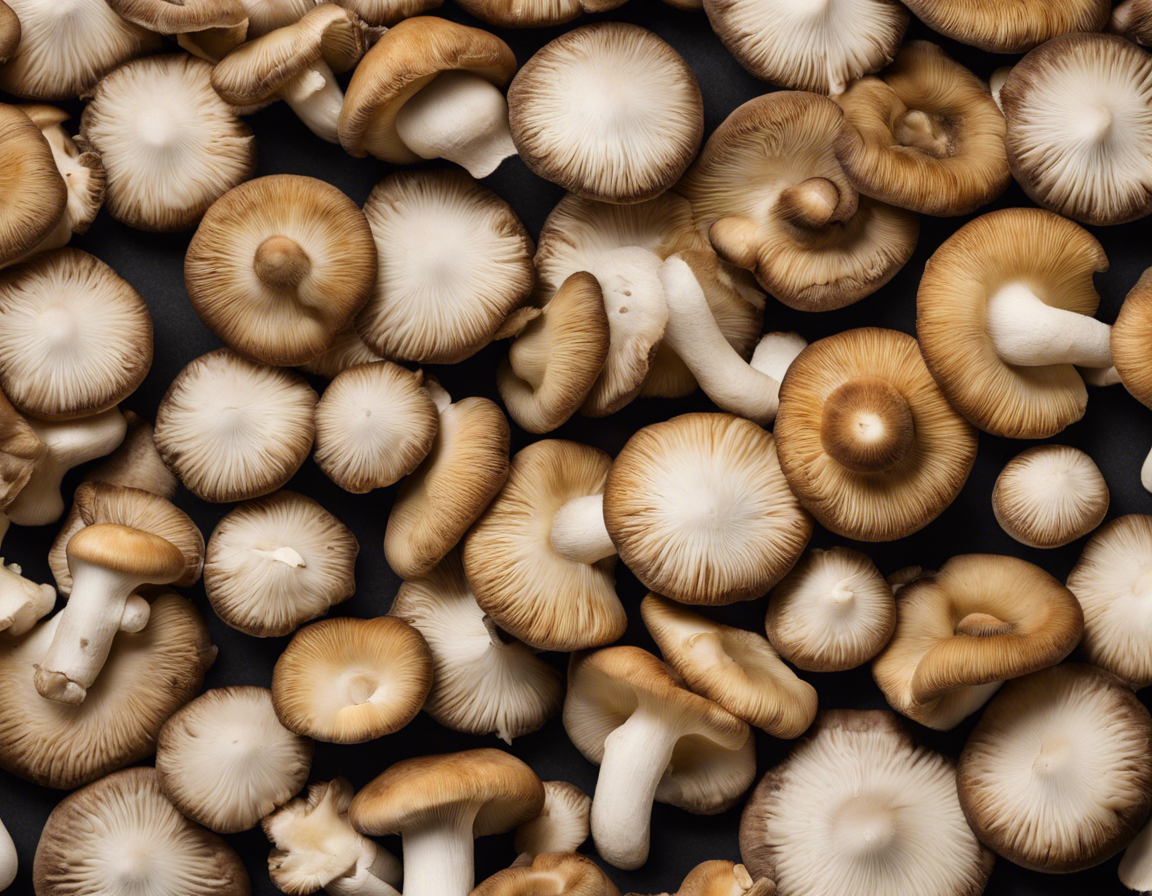Psychedelics have gained popularity in recent years, with more and more people exploring the mind-altering effects of substances like psilocybin mushrooms. While these fungi can offer profound experiences and therapeutic benefits when consumed responsibly, there is a potential risk of mushroom overdose that cannot be ignored. In this article, we will delve into the topic of psilocybin safety, discussing the potential dangers of overdose, how to recognize the signs, and most importantly, how to avoid it altogether.
Understanding Psilocybin and Mushrooms
Psilocybin is a naturally occurring compound found in certain species of mushrooms, most notably those belonging to the Psilocybe genus. When ingested, psilocybin is converted by the body into psilocin, which interacts with serotonin receptors in the brain, leading to altered perception, mood, and cognition.
Mushrooms containing psilocybin have been used for centuries in various cultures for religious, spiritual, and therapeutic purposes. In recent years, clinical research has shown promise in the use of psilocybin for treating conditions such as depression, anxiety, and PTSD.
The Risks of Mushroom Overdose
While psilocybin is considered to have a low potential for abuse and is not physiologically toxic, consuming large doses of mushrooms can lead to overdose. An overdose on psilocybin mushrooms can result in a range of negative effects, including:
- Intense hallucinations: Experiencing visuals that can be overwhelming and distressing.
- Paranoia and anxiety: Feeling extreme fear or paranoia during the trip.
- Loss of self-identity: Losing touch with reality and sense of self.
- Panic attacks: Sudden onset of extreme anxiety and fear.
- Psychotic episodes: Experiencing delusions or detachment from reality.
Recognizing the Signs of Mushroom Overdose
It is essential to be able to recognize the signs of mushroom overdose in oneself or others to take appropriate action. Some common signs include:
- Severe hallucinations: Visual or auditory hallucinations that are uncontrollable.
- Extreme paranoia: Feeling intense fear or suspicion.
- Confusion and disorientation: Being unable to distinguish reality from the psychedelic experience.
- Panic attacks: Sudden onset of extreme anxiety and fear.
- Agitation and aggression: Displaying aggressive behavior towards oneself or others.
If you or someone you know is experiencing these symptoms after consuming mushrooms, it is crucial to seek help immediately.
How to Avoid Mushroom Overdose
To prevent the risk of mushroom overdose, it is important to follow these guidelines when consuming psilocybin mushrooms:
- Start low and go slow: Begin with a low dose of mushrooms and gradually increase as needed.
- Know your tolerance: Understand how your body reacts to psilocybin and adjust your dosage accordingly.
- Mindset and setting: Create a safe and comfortable environment for your psychedelic experience.
- Avoid mixing substances: Do not combine psilocybin mushrooms with other drugs or alcohol.
- Have a trip sitter: Have a trusted friend present to provide support and guidance during the trip.
By following these harm reduction practices, you can minimize the risk of mushroom overdose and have a safer and more enjoyable psychedelic experience.
Frequently Asked Questions (FAQs)
Q: Can you die from a psilocybin mushroom overdose?
A: While psilocybin mushrooms themselves are not toxic, consuming extremely high doses can lead to psychological distress and potential harm. There have been rare cases of individuals engaging in dangerous behavior while under the influence of large doses of mushrooms, which can result in accidents or self-harm.
Q: How long does a psilocybin trip last?
A: The duration of a psilocybin trip can vary depending on factors such as dosage, individual metabolism, and tolerance. Typically, a trip can last anywhere from 4 to 6 hours, with effects peaking around 2 to 3 hours after ingestion.
Q: Can you build a tolerance to psilocybin mushrooms?
A: Yes, regular use of psilocybin mushrooms can lead to tolerance, requiring higher doses to achieve the same effects. It is recommended to space out psychedelic experiences to avoid developing too high of a tolerance.
Q: Are there any medical conditions that make consuming psilocybin mushrooms dangerous?
A: Individuals with a personal or family history of mental health disorders, such as schizophrenia or bipolar disorder, may be at higher risk of experiencing negative effects from consuming psilocybin mushrooms. It is important to consult with a healthcare provider before using psychedelics, especially if you have underlying medical conditions.
Q: How can I support someone who is having a difficult psilocybin experience?
A: If someone is having a challenging psychedelic experience, it is essential to remain calm and provide reassurance. Encourage them to focus on their breathing, change their environment if necessary, and remind them that the effects are temporary. If the situation escalates, seek professional help immediately.
In conclusion, while psilocybin mushrooms can offer profound insights and therapeutic benefits, it is crucial to approach their use with caution and respect. By understanding the risks of mushroom overdose and following harm reduction practices, you can stay safe and maximize the positive effects of these powerful fungi. Remember to always prioritize health and well-being when embarking on a psychedelic journey.
